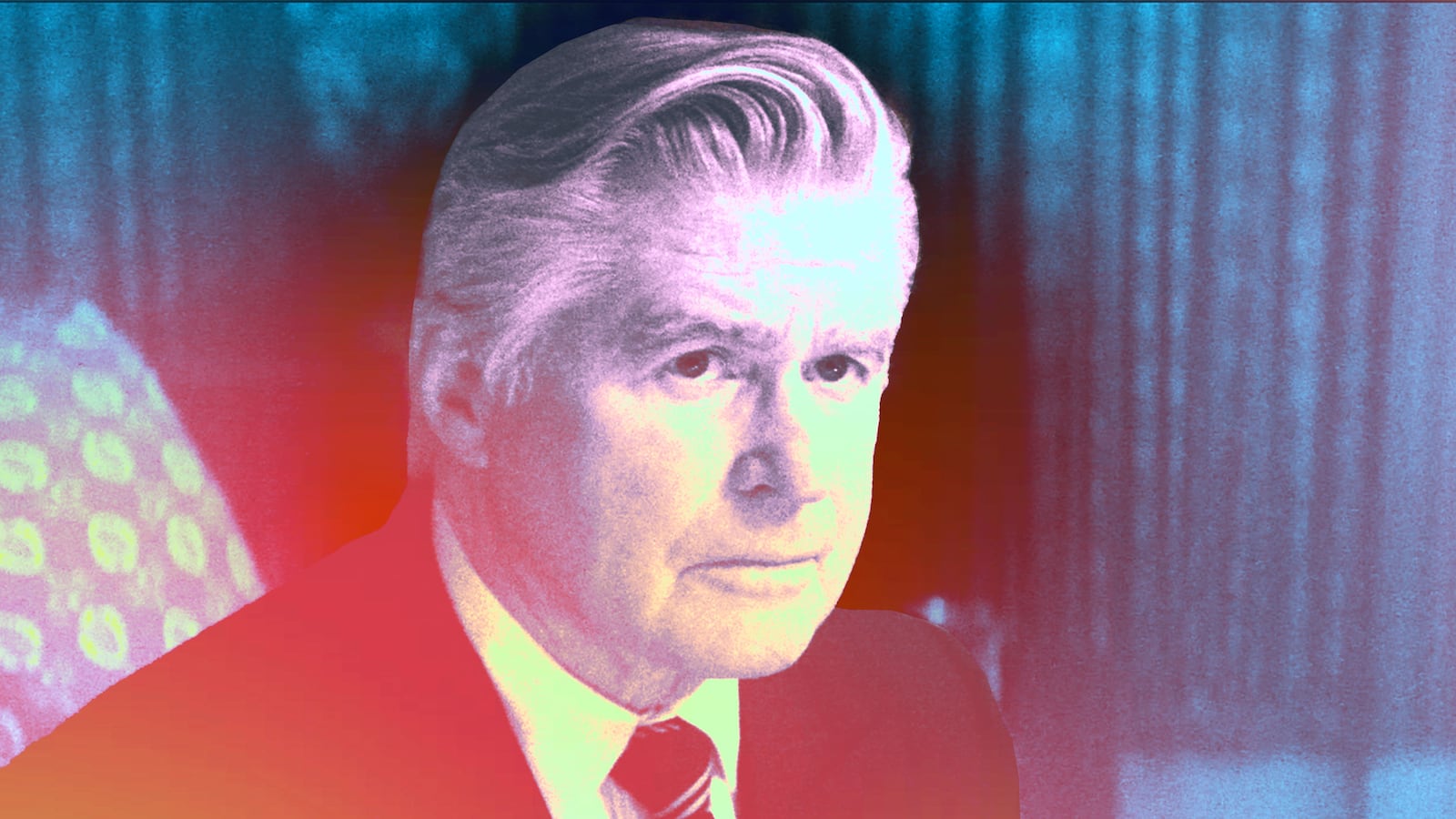Certain actors instantly light up the screen, no matter how big or small their roles. Treat Williams was one such performer, making his final role as legendary CBS executive William “Bill” S. Paley in Feud: Capote vs. The Swans all the more poignant—particularly in an episode where his character contemplates the mortality of a loved one.
Among larger-than-life figures like Truman Capote (Tom Hollander) and the coterie of glamorous and infinitely watchable women orbiting the famous author, Williams, in a supporting role, is an irresistible grounding force pulling focus whenever he appears.
It is Bill’s dirty laundry—quite literally—that Truman spills on the pages of Esquire in “La Côte Basque, 1965,” taking information shared to him in confidence by Babe Paley (Naomi Watts) about her husband as titillating inspiration. Breaching the trust of his most favored “swan,” Babe, and taking on the powerful couple spells the end for the famed author’s high society access.
“Doesn’t he know who we are?” is Bill’s response when he reads Truman’s thinly veiled tell-all at the end of the premiere episode. Rather than bellowing this common refrain wielded by the rich and famous, Williams delivers this line with quiet disbelief, making it all the more impactful than pomp and bluster. Of course, if Bill could control his libido, then Truman would have to find salacious tidbits elsewhere. Babe recognizes that both the men she loves have caused her great harm.
Writing Bill off as a dirty shagger who can’t keep it in his pants would be easy with an actor lacking the layered charm of Williams. The CBS titan is certainly fallible in this series, but this portrayal also speaks to why Babe stays by his side for reasons beyond the expensive gifts and status reasons Truman lists in the pilot. Whether it’s a torrid affair or the IRS banging at the door, the writer ensures he is the first port of call when any of his swans are in crisis, but by the time Babe begins cancer treatment, Truman is excommunicated from the group. Babe now refers to Bill as her best friend and has no use for her second husband of sorts, Truman.

A career of magnetic men
Despite Bill’s influence, he cannot do anything to stop what is happening to his wife’s health. “He’s used to running the world. Nobody runs cancer,” Babe’s doctor tells her in the recent episode. Death looms large over the series, from Babe’s frankness about having months left to live to the knowledge that Williams, playing her husband, was killed at the age of 71 in a motorbike accident last year.
Williams made his mark from his breakout role in the late ’70s in the musical Hair—his glorious locks matched his magnetism—and he was a two-time SAG nominee for his work on Everwood as Dr. Andy Brown. Airing on The WB, the latter lands Williams in the TV Dad Hall of Fame alongside the likes of The OC’s Sandy Cohen (Peter Gallagher) and Coach Eric Taylor (Kyle Chandler) on Friday Night Lights—even though Andy flounders in the parenting department.
My recent rewatch of USA’s highly entertaining White Collar, which happened to overlap with watching Feud, only adds to the bittersweetness of watching his final performances. Williams guest-starred on White Collar in a season-long arc as a character with ties to Matt Bomer’s Neal Caffrey. It is another layered role highlighting his ability to combine a guarded appearance with a softer side. No matter the role or setting, an ever-present glint in his eye and a cracking smile made Williams charm-personified.
Feud showrunner Jon Robin Baitz and director Gus Van Sant deploy these aspects perfectly. The fourth episode, “It’s Impossible,” ends with an “In Memory of Treat Williams” dedication, making this loss hit even harder.
Over the first half of the season, Babe goes from begrudging tolerance regarding Bill’s frequent trysts with other women to actively encouraging him to move on when she is gone with someone close to her. In doing so, Feud’s non-linear storytelling causes whiplash as the timeline bounces between the highs and lows of Babe’s relationships with the two men she loves. The bloody affair with Happy Rockefeller (Rebecca Creskoff) takes place two years after Truman’s Black and White Ball at the Plaza, which is preceded by another dalliance. Episode 3 shoots this starry event like a documentary by the Maysles brothers (think Grey Gardens), taking a fly-on-the-wall approach to capture Babe in unvarnished moments.
From encountering a party planner who is Bill’s “latest piece of ass” to arguing with her husband in the background, Van Sant draws a sharp line between manicured perfection and the uglier side of this marriage. While Babe teaches Truman the ideal paper stock for party invites, a sheepish Bill comes into the room with packed bags, suggesting he will spend the night in a luxury hotel doghouse. At the ball, they dance together like nothing is wrong, and yet, Williams ensures the audience knows Bill is irritated by the camera getting shoved in their face.
Bill Paley’s philandering
Memories echo throughout Feud, whether a nightmarish version of Truman’s dead mother, Nina (Jessica Lange), who continues to pop up or frequently reminiscing about happier times. The fourth episode, “It’s Impossible,” shows Truman contemplating a sequel to the Black and White Ball with a brand new guest list that still features his old friends. Slim Keith (Diane Lane) actively plots against this comeback, planting nasty rumors with gossip columnist Liz Smith as a preemptive attack. Babe no longer wants to go along with the group’s plan to ostracize Truman; plus, she wants to go dancing again. After all, time is too short to stew in bitterness when you can party instead.
Bill shares his fears with Slim about Truman clawing his way back into his wife’s affections, which wouldn’t need commenting on if he wasn’t getting dressed. Yep, Slim is fucking her friend’s husband, and this reveal is gasp-worthy. OK, so there is something very hot in the casual familiarity of this conversation, and Lane does this incredibly sexy snap with Bill’s belt. However, playful electricity can’t negate the betrayal.
“Bill would have thought nothing of taking as his mistress a woman who was in his wife’s circle. He did such things not to shame Babe but because he didn’t care. He simply did whatever he wanted to,” says Laurence Leamer in Capote’s Women. Feud takes inspiration from this book, but Williams, as Paley, infuses shame and guilt into these sexual dalliances—as well as crackling undertones.
We already glimpsed how Bill reacts when he is caught with his pants down, or rather, mid-scrubbing menstrual blood off the carpet: Wearing only his underwear, his face is pure rabbit-in-the-headlights. We have also seen the artwork and jewels Bill has splashed out on whenever he steps out of line, which is a lot. Babe could open a boutique with the treasure trove of trinkets that she shows Slim in the second episode, and the clock is ticking on what he can purchase to make up for his current affair.
Infinite chemistry
Chemistry is hard to pin down, whether in real life or on screen, but Williams is the kind of actor who has oodles of it with various scene partners. Opposite Watts, there is a lived-in quality to their interactions—even if Bill tiptoes around his wife—and while they are no longer having sex, they still convey a couple who knows the contours of each other's bodies. Here is where dancing comes into play, during a scene that begins with Bill griping about CBS being third in the ratings (out of three networks) and ends with him clinging to his wife in a futile bid to rescue her from her fate.
Comfortable intimacy emanates from the dark decor, wood fire, and drinks. Bill puts on Babe’s favorite song, Perry Como’s “It’s Impossible” (which also opens the episode). It is a tad on the nose, but Feud is not trying to be subtle. Typically, if someone starts singing along, my cringe sensors start sounding, but Williams evades this in his sweet and sad serenade.
Babe brings Bill back down to earth, talking about the end and that she has forgiveness on her mind before dropping the bombshell that she thinks “Slim is good. She’s smart, witty, reliable, solid, and she gets you.” Surprise and shame are etched on his face. “Does that mean you forgive me, too?” he asks with an anguished smile. It is a tender and vulnerable sequence, allowing Williams to cycle through a series of emotions while Watts keeps her composure. Certainly, this is a teary-inducing moment, yet it has nothing on a scene that hits like a gut punch.
“I don’t know how I’ll face seeing her,” says Slim when Bill tells her that Babe knows. “I don’t know how I’ll face not seeing her,” replies Bill. The stark honesty of this reaction and the very real knowledge of Williams’ passing makes this line sting, hanging in the air as a reminder that this is Williams’ last role. Truman Capote’s words humiliated the TV executive, but in Feud, Bill Paley gets the gift of being portrayed by a great character actor in his untimely swan song.






